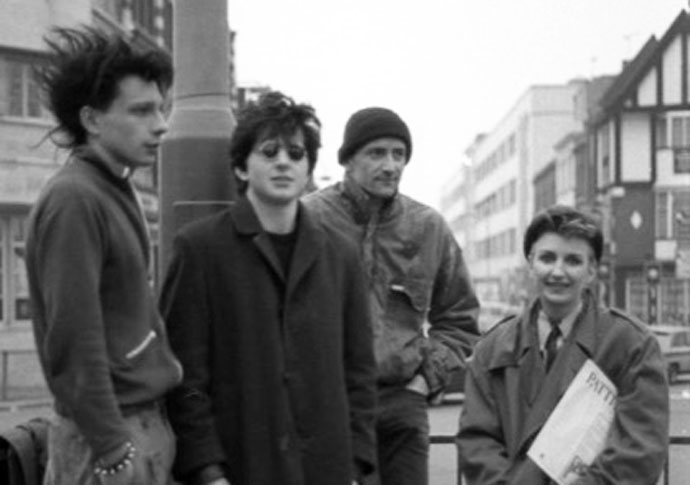Travels in a demi monde
George Binette senses a strange allure in journalist and musician Richard Cabut’s psychic journeys across European and US cities
Friday, 29th August 2025 — By George Binette

A recent image of Richard Cabut
“WHEN I was younger, so much younger than today,” I pored over the pages of the ink-shedding New Musical Express (NME) with something akin to religious fervour. Among the regular contributors I can vaguely recall from the 1980s was a Richard North, the pseudonym for author Richard Cabut.
A child of Polish refugees to Britain, a one-time fanzine editor, Polytechnic of North London student and bass player in the band Brigandage, Cabut’s best-known work at the NME charted the evolution of a branch of post-punk into goth subculture.
Drawing loosely on notes, some dating from 40 and more years ago, Cabut has compiled a slender paperback that defies ready categorisation. Perhaps the label “urban psychogeography” fits as well as any.
There is an acknowledged debt to the situationist thinker Guy Debord, though this book seems stripped of Debord’s Marxist trappings.
Cabut also doubtless sees himself as a descendant of Charles Baudelaire’s mid-19th century Parisian flâneur.
The wilfully disjointed, fragmentary style of Cabut’s “automatic writing” (his own characterisation) will swiftly alienate many a potential reader, but a determined few will find precious nuggets amid the detritus.
Ripped Backsides – the title derives from a line in Iggy Pop’s 1977 release The Passenger (“We’ll ride through the city tonight/See the city’s ripped backsides”) – rarely delves deep into the seamy sides of the cities Cabut has visited nor does it convey more than a very occasional sense of a specific time and place. What he does communicate, however, is the disorientation of a fever dream, laced with mordant humour.

Richard Cabut when he was a member of punk band Brigandage in the early 1980s
In what appears as an intermittent piece of film dialogue, Cabut writes during a 1987 visit to Berlin: “I wanted to start hating Brecht but instead I started to hate myself.”
In a similar vein is time in Los Angeles that same year inspires this snippet: “I am not scared of America, but it absolutely frightens the life and death out of me.”
His original notes of the LA stay, which appear as an appendix, included references to the one-time beach resort of “Venice – like Camden Market, baseball caps, Walkmans.”
The observation stands in ironic contrast with his chapter ostensibly dealing with London, which consists of 45 paragraphs all opening with the phrase “I believe”: back-handed homage to a JG Ballard poem or an epic Buzzcocks’ song?
From LA he briefly ventures out of the Global North, with stops in Tijuana and Ensenada, Mexico. Cabut’s perception becomes somewhat darker, and he seems temporarily shaken from a jaded complacency: “City alters assumption of what cities should be like.” And the author identifies the requisite skill as “Knowledge of exactly how much malevolence needed to just keep going”.
Cabut appears to have first visited his parents’ native Poland, aged seven in 1967 and several times since, though is the reference to “2077” a typo or perverse whimsy? Warsaw and Krakow are Ripped Backsides’ final destinations and Cabut seems gripped by the spirit of Mitteleuropa at its bleakest.
One particular sentence jolted me: “Priest gives absolution for all sins except hope.”
As Cabut’s friend and fellow writer Jeff Young suggests in the foreword, copies of Ripped Backsides “should be tattered and mottled with coffee and cognac stains and bookmarked with U-bahn ticket stubs”.
Meanwhile, should any readers know the fate of “Plume, a Camden Bohemian” and saxophonist in a band from the 80s called Dog Star, please contact the New Journal.
• Ripped Backsides: Postcards From Beneath The Pavement. By Richard Cabut. Far West Press, £10